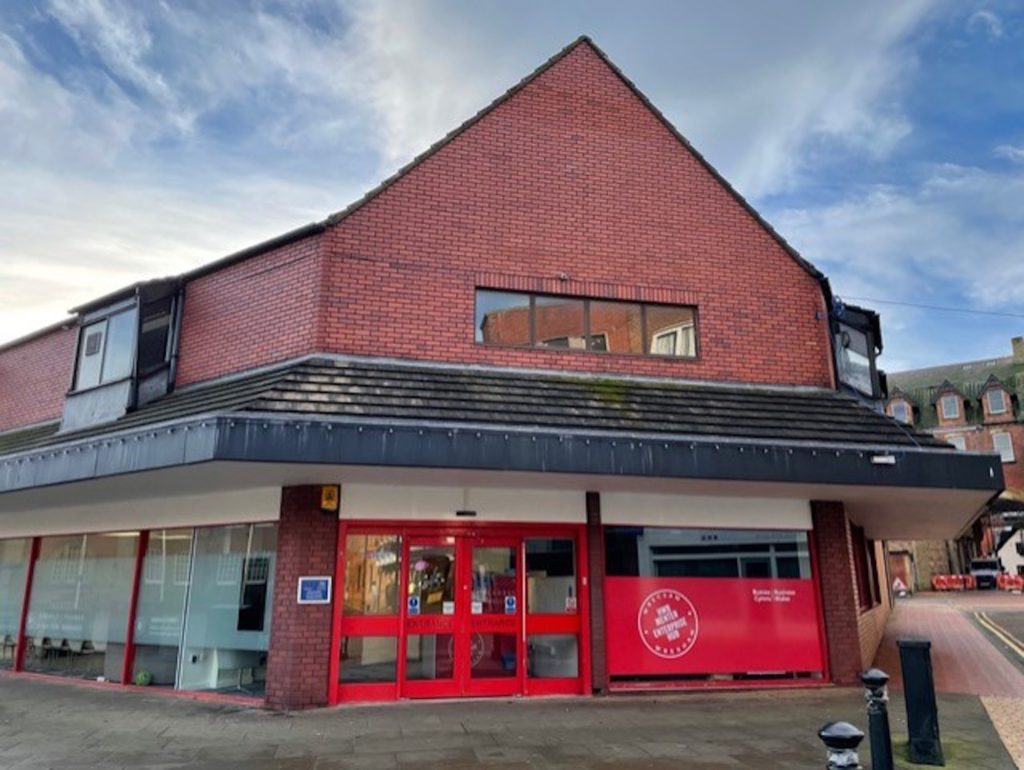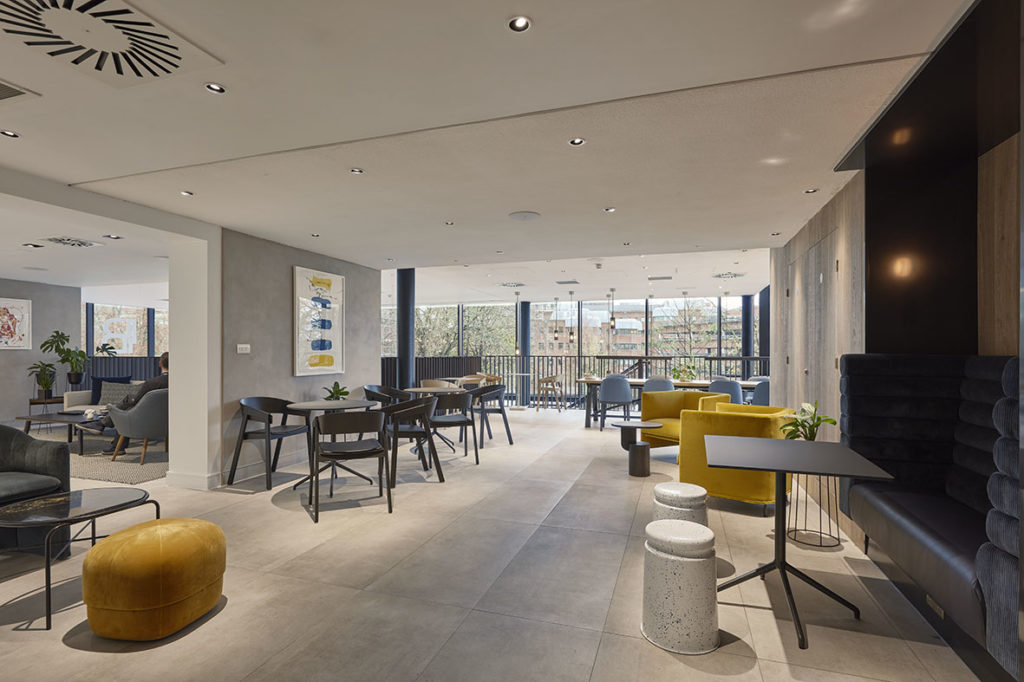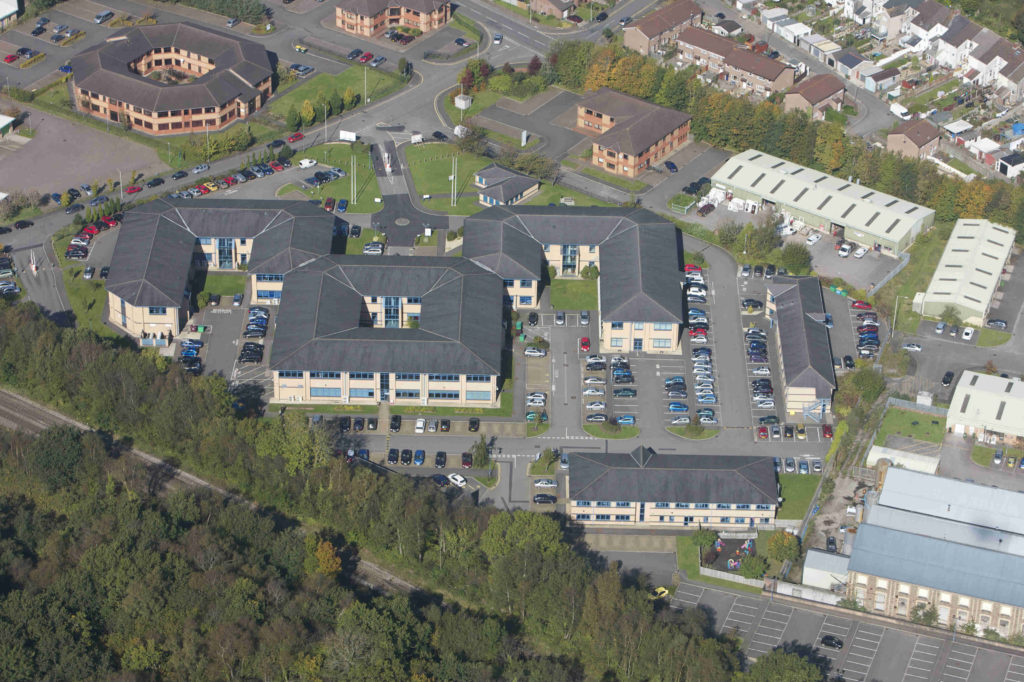We hear from three Welsh coworking spaces on how Covid-19 is changing our relationship with the office, and what comes next
Just over a year ago, on 16 March 2020, Prime Minister Boris Johnson issued a simple instruction to people across the UK: work from home. Many workers probably thought they would be out of the office for a few weeks while the situation was sorted out; most haven’t yet returned.
Spurred on by the pandemic, many of us are rethinking our relationship with the office. According to a survey from business publication Raconteur, 79% of respondents expressed a desire to work from home more regularly following the pandemic. But 1 in 5 respondents also said that working from home impacted their mental health or increased loneliness.
As more and more companies downsize their offices, or shed them altogether, the coworking sector stands poised to reap the benefits. In Wales, the government is actively encouraging employees to turn away from the office, while some coworking companies are even finding business is good enough to expand during our current downturn.
Is coworking in Wales about to boom? Or is this a fad that will die out when restrictions ease? We spoke to three coworking businesses operating across Wales to find out how Covid-19 has transformed the sector.
Town Square want to bring South Wales’ “creative, collaborative community” to the rest of the UK

Gareth Jones founded Town Square, which offers coworking spaces, an accelerator and startup advice to businesses, with Mandy Weston in 2017, after leaving their previous venture, Welsh ICE (below). According to Town Square’s website, Mandy and Gareth wanted to bring Welsh ICE’s “creative, collaborative community to entrepreneurs around the rest of the UK.”
Now, they have spaces in both England and Wales, including Wrexham, Bicester and Bognor Regis. Town Square’s Wrexham Enterprise Hub is funded by the European Regional Development Fund through the Welsh Government, and Business Wales offers its members one to one support.
Lizzie Stone, Community Co-ordinator at the Wrexham Hub, said the space was home to all sorts of businesses, from baby skincare brands to photographers and filmmakers. Wrexham locals are familiar with the site, she said, because it was built out of an old Iceland.
“People will see that friendly face on reception and just come in and ask questions, whether that’s asking what we do, or they need their bus pass renewed and we can point them in the right direction,” she said. “We wanted to be in the town centre so people know we’re a hub of knowledge for the town and we’re not just business support.”
Over lockdown, Gareth said, Town Square had organised wellbeing sessions and workshops to stay in touch with their community of businesses. That created an opportunity for conversations during Black Lives Matter protests in the summer and during LGBT Awareness Week, he added.
But adapting to our new digital world has not been easy. Whereas before the pandemic they would be able to check on their members with a simple glance at their body language, Gareth said, now members can just turn their Zoom cameras off.
“When it’s online and you’ve got 100s of members you’re trying to stay up to date with online,” he said, “that’s really hard.”
Covid-19 may well lead to an explosion in coworking spaces, but this wouldn’t necessarily benefit the sector. Gareth’s biggest concern, he said, was that many more people would seek to set up coworking spaces that are going to fail.
“That’s not because coworking doesn’t work, it’s because they did it wrong,” he said.
Whereas the pandemic forced other businesses to cut back, Clockwise opened their Cardiff space in the thick of lockdown

Clockwise is a national chain of coworking spaces owned by private real estate investment firm Castleforge Partners, with locations including Cardiff, London, Glasgow and Belfast. The company’s Cardiff space, which opened in September 2020, is their only Welsh location to date.
Stephanie Graves, General Manager at Clockwise Cardiff, said the space had a mixture of startups and established businesses like Yoello, which provides mobile ordering software for the hospitality industry, as well as architecture and law firms.
But the perception of coworking as a sector dominated by technology startups is one that companies like Clockwise find themselves wrestling with. In Cardiff, Clockwise were “more than proud” to be home to a number of tech companies, Stephanie said, but added that they also wanted to make sure that other businesses felt welcome.
Unlike many other spaces, Clockwise have opted to remain open throughout the entirety of the pandemic, having invested “a lot of money” to make sure their spaces are COVID-compliant.
One of the solutions they have turned to is Zonitise, a surface treatment that creates a “constant kill zone”, according to the Zonitise website.
It’s been a long time coming. The pandemic has pushed people into this position where they have to allow it, and a lot of people are finding that it works.
Although businesses in Wales were being cautious with their time and money, she said, there was definitely an appetite for “a more flexible option” than the traditional Monday to Friday office routine.
Stephanie said, “They don’t necessarily want to be in the office five days a week, maybe they want to come in three, but they want to have that option.”
“It’s been a long time coming,” she said. “Working from home has been in the back of people’s minds for a long time and the pandemic has pushed people into this position where they have to allow it, and a lot of people are finding that it works.”
As one of the first coworking businesses in Wales, Welsh ICE want to see a “stamp of quality” on spaces

Welsh ICE, a campus of coworking spaces based in Caerphilly, opened in July 2012. It was founded by Town Square founders Gareth Jones and Mandy Weston, who left in 2017, and father-and-son Anthony and William Record, who still serve on the board.
Jamie Macgowan, CEO of Welsh ICE, said that because ICE was one of the first coworking spaces in Wales, it was a bit of a hard sell at the time. There were some coworking initiatives in London and Bristol but apart from Indycube, the sector was underdeveloped in Wales.
“Some of the overwhelming responses were: ‘Why Caerphilly?’ and ‘Who’s going to use it?’,” he said.
In the last few years however, more attention being paid to coworking has allowed the sector to diversify. Coworking wasn’t just one thing now, Jamie said, adding that IndyCube and Tramshed Tech in Cardiff both had different models to ICE. There were lots of different routes a coworking space could go down now, he said.
ICE currently hosts 200 businesses in Caerphilly Business Park, the company’s website says, the majority of which are in digital technology and professional services.
Like other coworking spaces, ICE sought to replicate the coworking experience online when the pandemic began, providing a facilitated Facebook group and weekly online workshops on topics like paying taxes or finding new customers. But they quickly found that some people were far more interested in this digital community than their physical services.
Jamie said, “We’ve had 150 new members since Covid. People are signing up and going, ‘This is what I really want. I don’t care so much about your coworking space because I can’t get to Caerphilly. But they’ve found a lot of value in the online stuff.”
One issue brought on by the pandemic, Llinos said, was that large companies are getting rid of their offices, but employees are left without a space to work. She knew of a few people who were sitting at their kitchen tables, having realised they would have to do this forever now, and thinking, ‘no that’s not possible,’ she said.
There was certainly an opportunity for the coworking sector in the “sea change” happening across business, Jamie said, such as the Welsh Government’s desire to see 30% of employees working outside of offices in future. But, like Gareth at Town Square, Jamie was afraid that substandard spaces would turn employees away from coworking permanently.
“I think there almost needs to be a stamp of quality on the space,” Jamie said. “That they’re not just opening up spare rooms in council buildings and putting a table in there because that’s not what it is.”
Llinos added, “It’s got to be as easy as opening up your laptop at home, going on your WiFi, and being able to immediately start working. Because it’s got to get them out of the house.”
Where to find coworking spaces in Cardiff
- Clockwise Cardiff, Brunel House, 2 Fitzalan Road, CF24 0HW
- Rabble Studio, 103 Bute Street, CF10 5AD
- IndyCube, multiple locations
- Tramshed Tech, Unit D, Pendyris Street, CF11 6BH
- Cultvr, 327 Penarth Road, CF11 8TT
